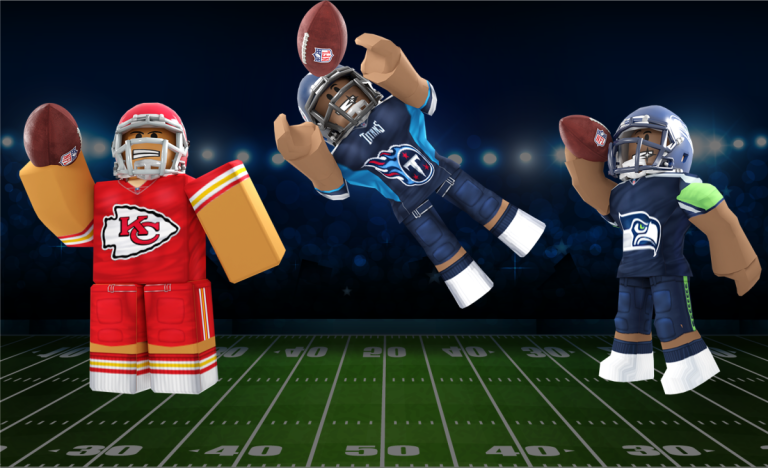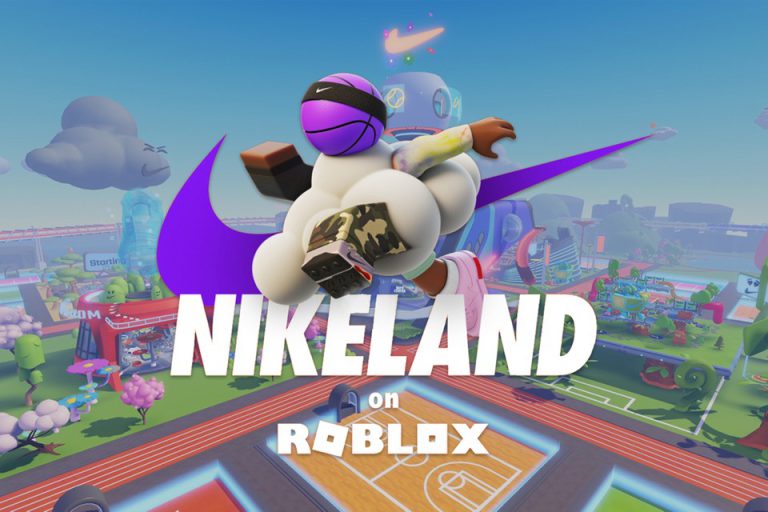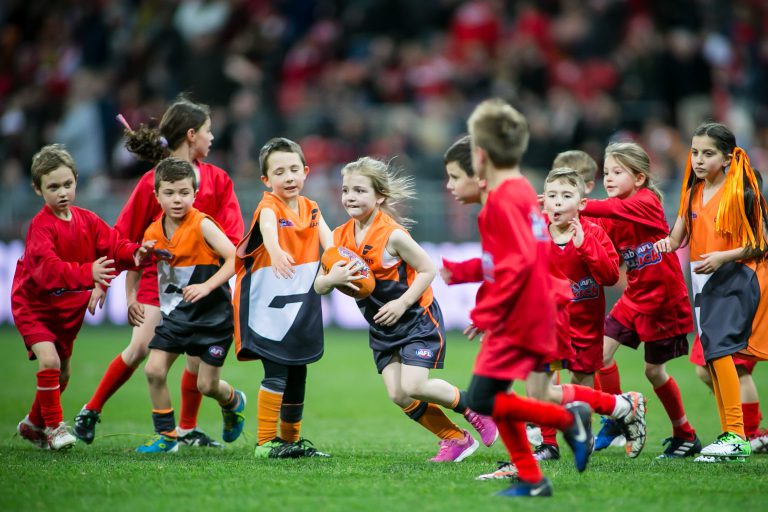Don’t lose sight of reality
Next generation sports for Next Generations
There is a changing of the guard. Generations Z and Alphas (those aged 10–25 and under 10 years respectively) are now the focus of sports and sponsors. The challenge is reaching and capturing the attention of these typically impenetrable, tech-savvy, hyper-connected markets, which represent one-third of consumers, fans, voters and employees over the next decade.
Amid a rapidly shifting social and technological world, the sports sector needs to reach and retain the distracted eyeballs of these next gens. Through the exciting opportunities of mixed reality technology and bringing sport to preferred social spaces, sport can be assured of financial sustainability, but it must continue to ensure that society can benefit holistically, with the social and health outcomes it traditionally offers.

If you haven’t heard of the Metaverse, DAOs (Decentralised Autonomous Organisations), the Metaverse or NFTs (Non-Fungible Tokens), then ask a teen to explain. In a nutshell, the Metaverse (a name extracted from Neal Stephenson’s 1992 sci-fi novel, Snow Crash), is basically an alternative virtual, immersive world experienced through augmented and VR technologies. It is an online space to socialise, work, play or consume, usually via avatars. Some argue that digital worlds like Minecraft, Second Life and Fortnight are existing versions of the Metaverse, and tech innovators envisage increasingly sophisticated, 3D, multi-sensory experiences aided by VR headsets, mobile and cloud-connected servers. There will be digital parks, fields, courts, schools, shops and clubs that mirror our offline lives and communities, and this real estate is being snapped up by sports and sponsors.
Let’s take the Winter Olympics as an example. In a parallel Metaverse, we could be skiing, snowboarding, ice-skating or bob-sledding in locations around the world and experiencing this in an extra-sensory way such as the feel of the cold air, the crowds cheering and the adrenaline. Remove the headset and witness a live downhill slalom by the best in the world after experiencing the course as a competing skier in the Metaverse. Digital assets (NFTs) can be purchased or awarded, providing unique memories of the event or a performance edge with the latest set of customised skis and boots. Related high performance and experience services are available, such as coaching, analytics, food and merchandise. It’s no surprise that last week, the International Olympic Committee announced the launch of a new NFT game, ahead of the 2022 Winter Olympics.
Essentially this immersion blends online and offline experience and opens up new assets for commercialisation, engagement and broadcasting. Communities can form and fan-to-fan interaction is enhanced beyond the stadium and between live events. This strategy is moving quickly- as I’m writing, there has been an announcement that the NFL has just released a new game (NFL Tycoon) on Roblox for the Superbowl Leadup, allowing both fans and Roblox players to build and play in their own NFL-centric world.
The significant funding being invested into digital assets by sports and sponsors indicates that many believe the Metaverse experience is here to stay. Microsoft expanded into the Metaverse with a $US69 billion acquisition of ActivisionBlizzard, Facebook relaunched as Meta late in 2021 and Nike partnered with Roblox to build Nikeland in the Metaverse. (Roblox is one of the largest under-12s gaming and social platforms, generating $US509 million in the first quarter of 2021 and attracting 32.6 million daily active users.)

Like Roblox, Fortnight is another burgeoning Metaverse, housing a growing collection of licensed skins in collaboration with celebrities, movie and gaming characters, and athletes and sports such as Lebron James, the NBA, NFL, Premier League and Ferrari.
Sports need to be listening and monitoring the Metaverse. This convergence of culture, sport, fashion, music, art and gaming gives rise to new influencers, high rating content and e-commerce opportunities. For example, in 2021, many Gen Zs were collecting, trading and gifting digital assets.
Media habits have dramatically evolved over a generation from Gens X and Millennials to the new frontier of mobile and laptap devices supporting broadcasting via Twitch, Tic Tok, Youtube and Roblox. Among Gen Z, there is declining viewing of sports, with only 53% identifying as sports fans and 39% never watching sports. Sports and broadcasters need to adopt high-growth strategies targeting next gens in eSports, the Metaverse and social media. Traditional broadcasts are being unbundled to be relayed as highlights, with customised content or parallel broadcasts for multi-device viewing, to reconfigure to next gens’ new consumption behaviours.
Brand extension through gaming development, partnerships and licensing is becoming an integral pillar of future proofing sport. Formula One, the NBA, FIFA, tennis and the English Premier League have all diversified into gaming and eSports, increasing their reach exponentially. For example, Formula One launched the Esports Virtual Grand Prix Series in 2020 to replace lost races due to the pandemic and has broadened audiences through this enduring business strategy.
Sports apparel brands are joining the virtual expansion. For example, Nike’s recent launch of its own Metaverse, Nikeland, aligns with Nike’s brand mission of making sport a lifestyle and targets next gens with brand immersion through novelty, play, sampling of products, rewards and offline experiences in flagship environments. Active behaviour offline is incentivised through rewarding of movement. Athletes are also investing by licensing their name, image and likeness in gaming and virtual worlds, and more recently through the issuing of NFTs. Smart stadia and augmented, virtual and hologram technologies will deliver new benchmarks in live, mixed reality experience both in stadia and at home. Depth and length of engagement will be enhanced by complementing the live experience with continued virtual activations pre and post event. Virtual stadia are adding tiered seating and ticket pricing related to proximity to the action or VIP experiences, just as they exist offline. In this context, sponsorship reach and valuation will need redefining, with capacity for a live experience to house the whole globe.

NFTs
Sports and athletes are now commercialising their brands by issuing digital assets such as images or video data that can be traded, shared or gifted. These files are minted into the blockchain network, creating value through exclusivity. For example, baseball and NFL trading cards have now been blockchained and can be authenticated, and athletes have issued JPEG files and video footage of career highlights. Each time the assets are sold or bought, the licensor or owner receives income – potentially a much-needed boost for all athletes, including less-resourced student athletes, female athletes and grassroots sports. A recent partnership between the NBA and Dapper Labs secured $230 million in sales of NFTs, and several athletes, including Peyton Manning, Tom Brady and Rob Gronkowski, have released NFTs.
Social Good
The global and cross-cultural reach of eSports and the Metaverse provides sport with a powerful mechanism through which to lead positive social change agendas and incentivise good citizenship behaviours among next gen leaders. Sport can leverage engagement with youth in mediated environments to educate and build diverse and inclusive communities that can connect in both online and offline tournaments. Roblox provides gamified coding, computer science and 3D animation education in immersive virtual worlds that may range from building virtual robots which then compete against each other, or experiencing living in ancient Rome as children, and undoubtedly these Gen Alphas are now moulded with mixed reality experiences that can be leveraged by sport.
With child obesity and health-related issues escalating globally, sport can initiate gamified incentives for activity offline in these virtual spaces, as Nike has successfully demonstrated through Nikeland. Trusted sports brands can also assist with eliminating challenges associated with anonymity, such as bullying and discrimination. One example is Next Earth, a virtual platform for land ownership in which owners build and govern a sustainable community and a token marketplace, which raises income for climate change initiatives offline. Assets for sale on Next Earth now include iconic real-world landmarks and sports stadia.

While still emerging, these strategies provide real opportunity to explore and fully activate social virtual landscapes for societal benefit and youth safeguarding. ESports are already being used in education to build STEM skills and provide a pathway to higher education and careers. The equality of access that mediated environments provide presents opportunities to better engage with marginalised people, such as those living with physical impairments, and to champion gender equality. Recently, the Global Esports Federation joined the Sports for Climate Action initiative by the United Nations Framework Convention on Climate Change, and also the United Nations’ Sustainable Development Goals, elevating eSports’ potential to contribute to social change at scale. With sports and athletes increasingly embodying values and activism aligned with these initiatives, it follows that sports need to consider scaling their purposeful brands and social licence through the digital reach provided by virtual media.
The Challenges
The technology is rapidly evolving. It is unclear whether there will be a consolidation into a single Metaverse, or whether there will be multiple Metaverses. Either way, ownership and trust will be a key concern, with big tech and well-resourced brands making significant investment. Related to this is the enhanced capabilities for big data collection, and tracking and retargeting of vulnerable consumers, including minors. The largely unregulated space signals real concern for child safeguarding through unwanted virtual close contact (already a major issue in existing virtual social platforms), use of virtual currencies and exposure to harmful content.
These new virtual social worlds emerge in an already saturated screen lifestyle that has been exacerbated by the COVID pandemic and its stoppage of community and professional sport, and face-to-face schooling. Health experts, parents and teachers have rising concerns over adverse social and health impacts of excessive screen time. By engaging in new virtual spaces, sport needs to carefully lead these interactions to ensure it educates, advocates and rewards positive behaviours such as physical activity, offline interaction with school, friends and family, and providing positive role modelling through athlete heroes in offline and online worlds. The diversification into eSports, the Metaverse and mixed reality channels presents an opportunity to not only build the future fan base, but future participation in sport and activity generally, to mitigate against sedentary lifestyles and build healthy communities.
Brand extension into virtual social spaces can be risky for trusted sports brands, yet failure to do so risks missed opportunities to capture next gen fans and participants. At the very least, sports should build virtual literacy, an innovative mindset, monitor strategies from other sports and sponsoring brands and prepare for multi-channel, mixed reality marketing communications and brand activations and experiences. Oversight of regulation of blockchain technology and complex legal issues associated with celebrity athlete data and name, image and likeness commercialisation is also advised.
It’s a brave new world, but one that is both daunting and thrilling.
About the Author
Professor Sarah Kelly, renowned for her global academic, leadership and governance expertise across education and sports management, drives forward-thinking initiatives to the world stage. A distinguished ‘prac-academic’, commercial lawyer and champion for inclusivity, Sarah leads with innovation and insight. For exclusive updates on the latest in sport, management, leadership, education, innovation, and research, subscribe at DrSarahKelly.com.au
